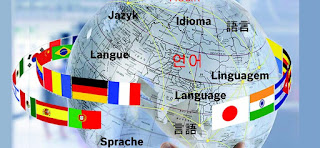Goods and Services Tax(GST)
Goods and Services Tax (GST) is an indirect tax relevant
throughout India which changed various cascading taxes accessed by the central
and state governments. It was introduced as The Constitution Act 2017. next the
passing of Constitution 122nd Amendment Bill. The GST is governed by a GST
Council and its Chairman is the Finance Minister of India. 1st July, GST Tax
Rate in India Rate Slabs 5%, 12%, 18% & 28%. Combined GST rate is being
discussed by the Government. After the total GST rate is arrived the center and
state will decide on the CGST and SGST rate.
Gold and rough diamonds do not fall under the current rate slab ambit
and will be taxed at 3% and 0.25% respectively.
Current scenario:
No tax (0%) will be imposed on items like Jute, fresh meat,
fish chicken, eggs, milk, butter milk, curd, natural honey, fresh fruits and
vegetables, flour, besan, bread, Prasad, salt. Sin door, stamps, judicial
papers, printed books, newspapers, bangles, handloom, Bones and horn cores,
bone grist, bone meal, etc.
Hotels and lodges with tariff below Rs 1,000, grandfathering
service have been exempted under GST. Rough precious and semi-precious stones
will attract GST rate of 0.25 per cent.
Items such as packaged food items, Apparel below Rs 1000,footwear
below Rs 500, cream, skimmed milk powder, branded pannier, frozen vegetables,
coffee, tea, spices, pizza bread, rusk, sabudana, kerosene, coal, medicines,
stent, lifeboats, Cashew nut, Cashew nut in shell, Raisin, Ice. And Transport
services Railways, air transport, small restaurants will be under the 5%
category because their main input is petroleum.
Apparel above
Rs 1000, frozen meat products , butter, cheese, ghee, dry fruits in packaged
form, animal fat, sausage, fruit juices, medicines, tooth powder, coloring
books, picture books, umbrella, sewing machine, cellphones, Ketchup &, All
diagnostic kits and reagents, Exercise books and note books, Spoons, forks,
ladles, skimmers, cake servers, fish knives, tongs, Spectacles, corrective,
Playing cards, chess board, carom board will be under the 12%.
this tax slab
which include footwear costing more than Rs 500, Trademarks, goodwill, software,
Bidi Patta, Biscuits (All categories), flavored refined sugar, pasta,
cornflakes, pastries and cakes, preserved vegetables, jams, sauces, soups, ice
cream, instant food mixes, mineral water, tissues, envelopes, note books, steel
products, printed circuits, camera, speakers and monitors, pencil sticks,
Headgear and parts thereof, Weighing Machinery. Printers [other than
multifunction printers], Electrical Transformer, CCTV, Optical Fiber, Bamboo
furniture, Swimming pools and padding pools, Curry paste; mayonnaise and salad
dressings; mixed condiments
and mixed seasonings. AC hotels that serve liquor, telecom services, IT
services, branded garments and financial services will attract 18 per cent tax
under GST, Room tariffs between Rs 2,500 and Rs 7,500, Restaurants inside
five-star hotels.
chewing gum,
molasses, chocolate not containing cocoa, waffles and wafers coated with
chocolate, pan masala, aerated water, paint, deodorants, shaving creams, after
shave, hair shampoo, dye, sunscreen, wallpaper, ceramic tiles, water heater,
dishwasher, weighing machine, washing machine, ATM, vending machines, vacuum
cleaner, shavers, hair clippers, automobiles, motorcycles, aircraft for
personal use, hotels with room tariffs above Rs 7,500, 5-star hotels, race club
betting, cinema will attract tax 28 per cent tax slab under GST.
Many Indian
businesses offer goods and solutions through the internet. Previously, there
were no particular specifications for procedure of the e-commerce sector.
Presently, states have varied VAT laws for this sector. For example, online
websites like Flip kart and Amazon. For the first time, GST certainly maps out
the conditions suitable to the e-commerce sector and because these will apply
all over India, there should be no problem concerning inter-state movement of
goods anymore.
There is no doubt that GST is aimed at growing the taxpayer
basic by providing SMEs and the unorganized industry under its purview. This
will make the Indian market more competitive than before and make a level
playing field between large & small enterprises. Further, Indian businesses
will be able to better contend with foreign countries such as China,
Philippines, and Bangladesh.


Comments
Post a Comment